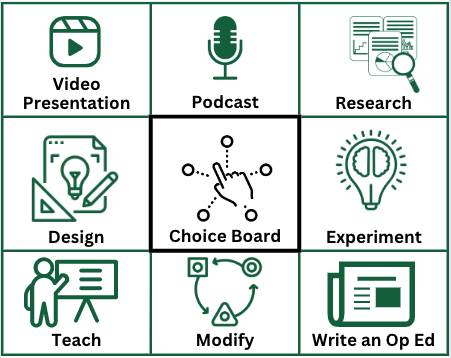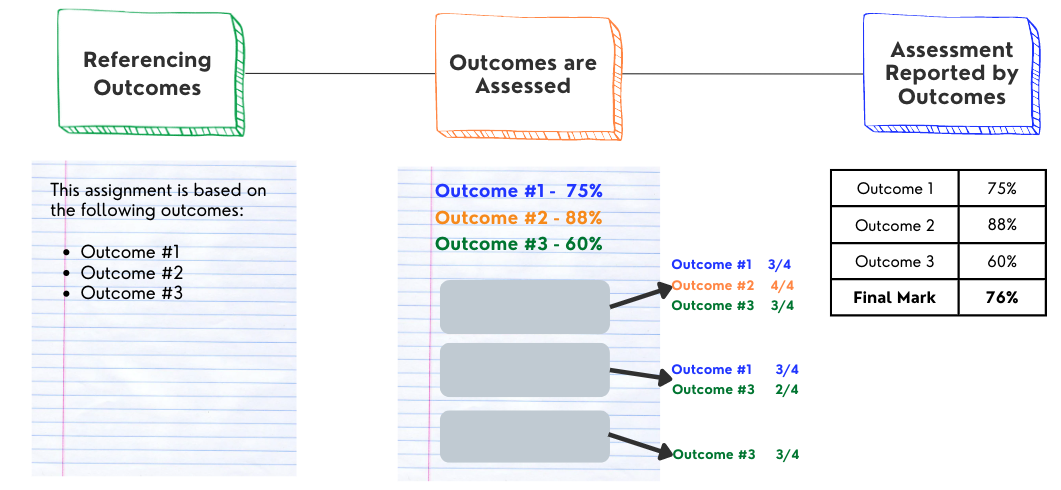Using Authentic Assessment to Integrate Current Events Into Courses
 Authentic assessments are activities, whether for marks or not, that involve students addressing “real-world” problems in a way that reflects activities they might engage in as professionals in the discipline. Authentic assessments can provide several benefits to both students and instructors, including:
Authentic assessments are activities, whether for marks or not, that involve students addressing “real-world” problems in a way that reflects activities they might engage in as professionals in the discipline. Authentic assessments can provide several benefits to both students and instructors, including:
- Enabling students to engage with current issues to increase engagement in learning actively
- Allowing students to see the role the discipline may play in addressing issues
- Broadening the audience, which may lead to increased effort and quality
- Sharing potential solutions outside of the institution is “what the world needs.”
- Reducing issues around academic integrity
When creating such activities for your students, there are a number of things that you will need to consider. You want to make sure that any assessments align with your course learning, so always start with the outcomes and then choose an appropriate assessment. What do you want students to be able to demonstrate in terms of knowledge, skill, understanding, etc., by the end of your course? Those are your course outcomes.
Based on your outcomes, think about what an authentic assessment in your discipline addressing these outcomes may look like.
- Do you have an existing activity that could be modified, or will you be creating a new assessment?
- What will you accept as evidence of students achieving those outcomes?
- How will you differentiate between “well” and “really well”?
The “what” you assess could be a product the students produce, such as a poster, video, or webpage, or you could assess the students’ reflections on the learning process.
You should also consider how students might share their work. If they are creating something like a video or poster, others may benefit from their work. Plus, research shows that students whose work is shared with an audience larger than just the instructor produce higher quality work.
If you are looking at ways for students to share their finished work, you should provide them with individual choices as to whether they’ll share it and, if so, what license they’d like on their work.
Other considerations include:
- What is a need in your discipline (for information or ideas) that your students could fill?
- Who is the audience that needs this information?
- What is the best way of presenting the information to make it easiest for the audience to understand it, be interested in it, and stumble across it?
- How will you or others review what your students create for accuracy and quality?
- How will your students be assessed? Can you use experts and community members to provide feedback to your students during or after the project?
- Are funding and technical supports available to help you?
- How will your students work together on shared documents and idea generation? Consider communication platforms, project management materials, etc.
To help you move forward with authentic assessment, here are some ideas for embedding such activities into your courses, whether undergraduate or graduate:
- History – make an ongoing project out of improving existing Canadian History open textbooks to better reflect the history and contributions of groups often excluded from history texts.
- Marketing – have students create and publicly share marketing campaigns around raising awareness of one or more pressing issues. Such a project was done in British Columbia to create a plan to raise awareness about the United Nations Climate Action Campaign.
- AgBio – as people are more interested in home gardens, have students create plain language tip sheets or brochures (openly licensed and freely downloadable) for those who are just getting started growing food in their own yards or community gardens.
- Education – have students create and publicly share resources for teachers and students on how to teach/learn remotely, addressing concerns around access and time management.
- Health Sciences – Have students create open resources that are more inclusive when taking patient histories.
- Kinesiology – Have students create and openly share resources to support people who want to be more active at home or through community facilities.
If you have questions, would like more information about authentic assessment, or would like to apply for some potential funding to support authentic assessment, please email us at the GMCTL
Image courtesy of Jon S. under a CC-BY license.


